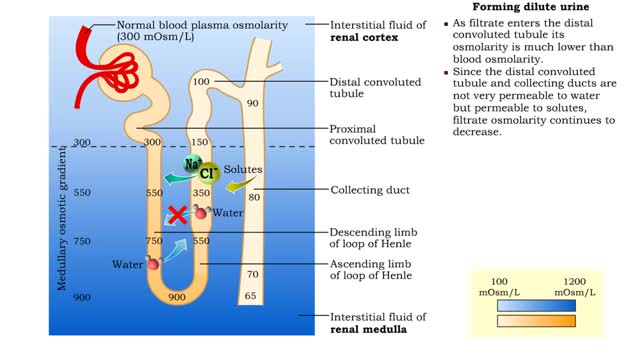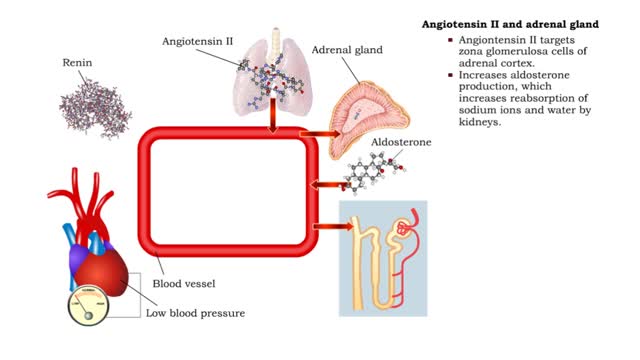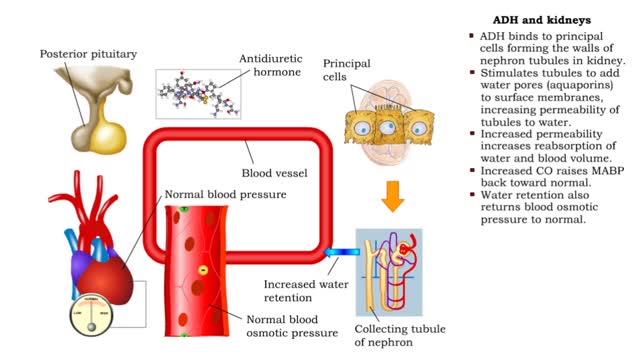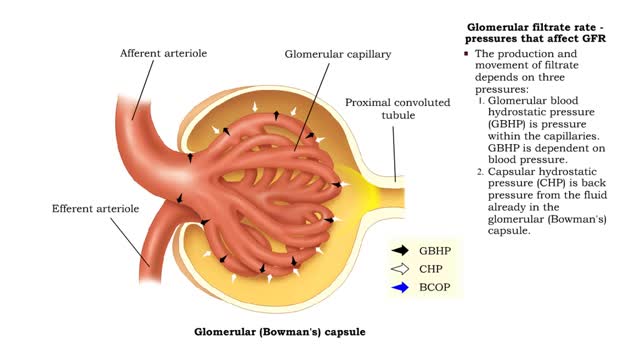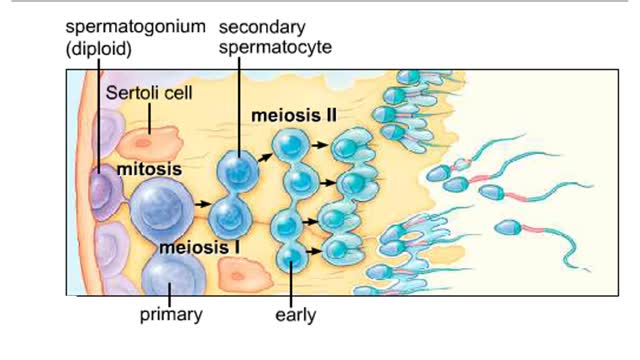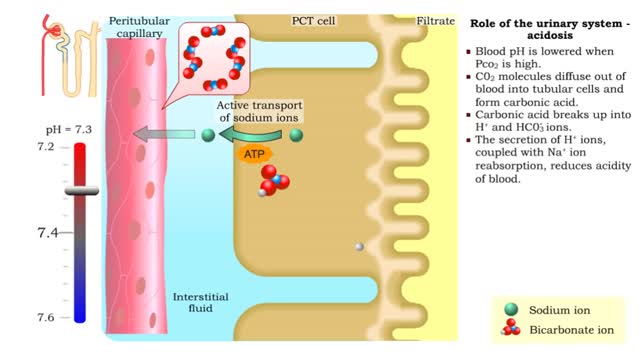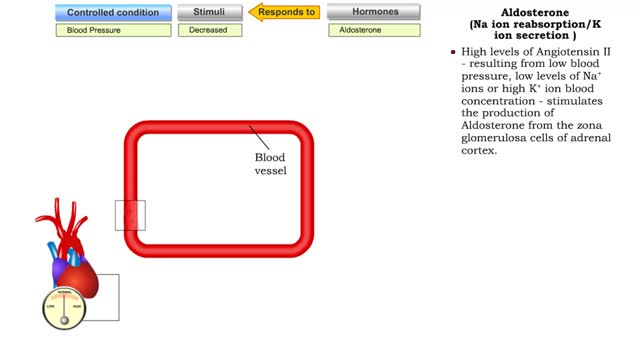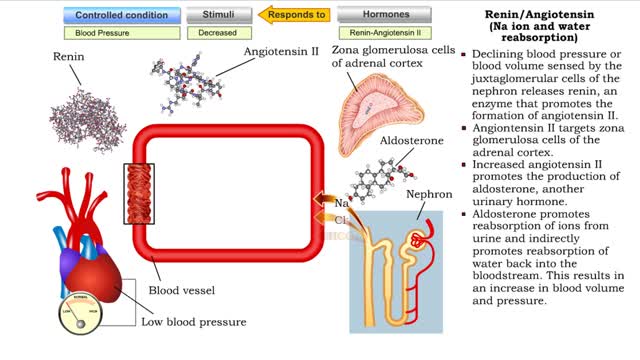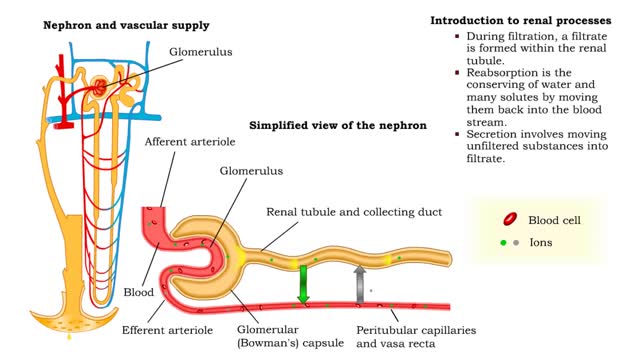Search Results
Results for: 'proximal covoluted tubule'
Forming urine ( influencing factors), Forming dilute urine & Forming concentrated urine
By: HWC, Views: 12195
• The amount of urine produced by the nephron depends on : • Body fluid volume. • Body fluid composition. • Dilute urine is formed when the body is normally hydrated. • The medullary osmotic gradient determines the osmolarity of the filtrate. • Filtrate osmolarity increase...
Angiotensin II - kidneys, adrenal glands and dehydration
By: HWC, Views: 11779
• Angiontensin II targets cells in the proximal convoluted tubule of the nephron. ■ The reabsorption of Na+ and Cl- ions sets up an osmotic gradient favoring the retention of water. • Decreases urine production and increases blood volume and pressure. • Angiontensin II targets zon...
ADH and the arterioles, kidneys, sweat glands and the Atrial natriuretic peptide (ANP)
By: HWC, Views: 11791
• ADH is also known as vasopressin. • Produced by hypothalmus and secreted by neurosecretory cells in posterior pituitary gland. • Responds to high blood osmotic pressure representing low amounts of water in the blood. • Binds to smooth muscle cells in walls of arterioles, stimulate...
Glomerubular filtrate rate -pressures that affect GFR and net filtration pressure
By: HWC, Views: 12063
• The glomerular filtration rate is the amount of filtrate formed per minute within the renal corpuscle. • Once the filtrate is formed it moves down the tubule. • The production and movement of filtrate depends on three pressures: I. Glomerular blood hydrostatic pressure (GBHP) is pre...
By: HWC, Views: 9860
Spermatogenesis takes place inside the seminiferous tubules. Diploid spermatogonia located near the outer edge of the tubule divide mitotically to form primary spermatocytes. The first meiotic division produces secondary spermatocytes with a haploid number of duplicated chromosomes. T...
Role of the urinary system - acidosis and alkalosis
By: HWC, Views: 11897
• Tubular cells of the proximal convoluted tubule and collecting tubules can alter filtrate pH and therefore blood pH. • These cells can affect blood pH with two coupled mechanisms: • Reabsorption of bicarbonate ions. • Secretion of hydrogen ions. • The reabsorption of bicarbonate...
Atrial natriuretic peptide (vasodilation) & Aldosterone
By: HWC, Views: 11450
• Certain situations will cause the body's stress level to rise. • increased blood pressure will stretch the atria of the heart, stimulating the secretion of atria natriuretic peptide (MP). • ANP causes muscle cells in blood vessels to relax. • Blood pressure is lowered as a result ...
Renin/Angiotensin (water gain from urine & Na ion and water reabsorption)
By: HWC, Views: 11676
• Sensing declining blood pressure or blood volume, juxtaglomerular cells of the nephron release renin, an enzyme that promotes the formation of angiotensin II. • Angiotensin II targets smooth muscle cells in blood vessels that provide blood to the nephron. • Angiotensin II causes thes...
Introduction to filtration - filtrate formation and composition
By: HWC, Views: 11843
• At the nephron, the three process responsible for the formation of urine include: • Glomerular filtration. • Tubular reabsorption. • Tubular secretion. • During filtration, a filtrate is formed within the renal tubule. • Reabsorption is the conserving of water and many s...
Advertisement



